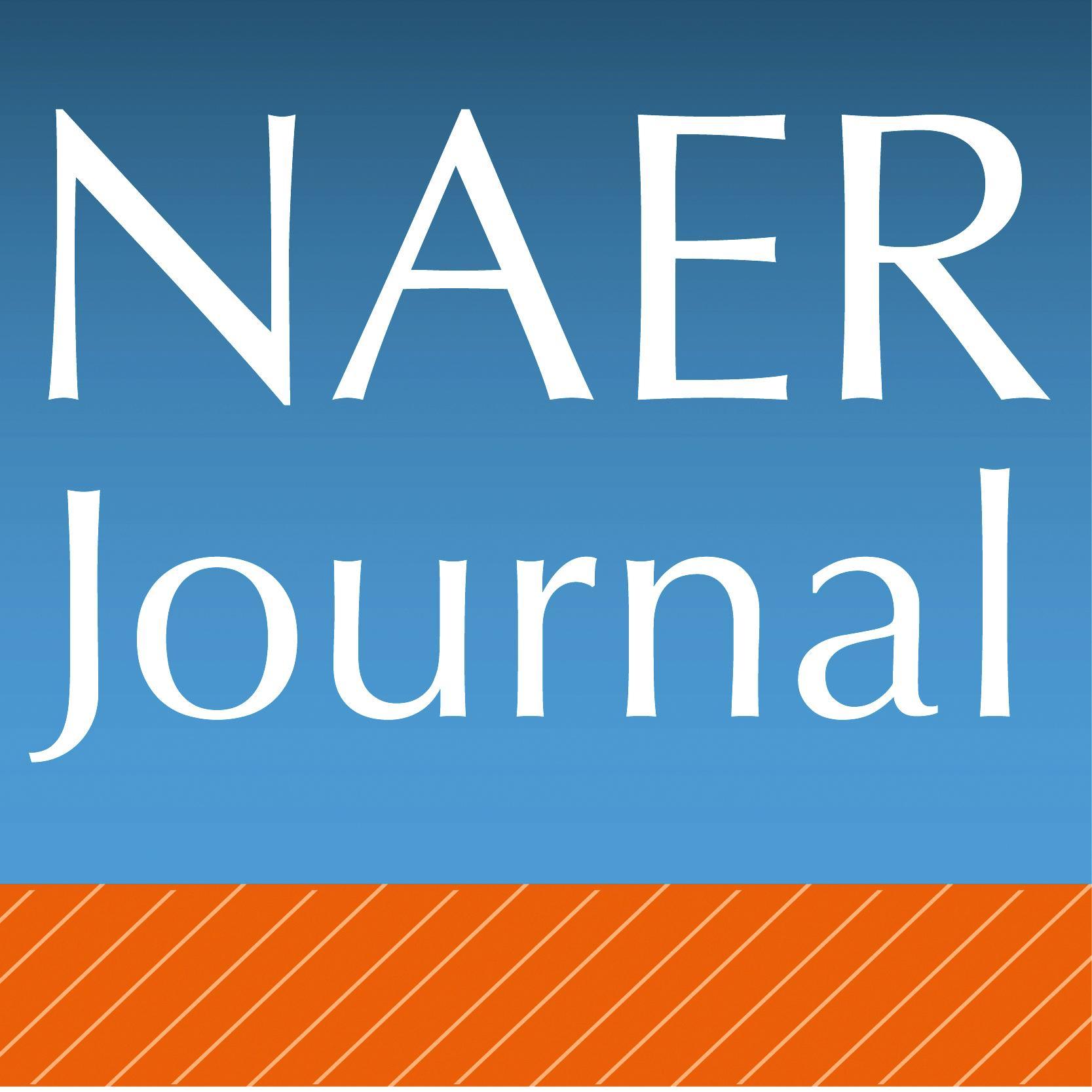Tecnologías Emergentes como recursos para la Inclusión Educativa: una revisión exploratoria
Agencias de apoyo
- ministerio de ciencia e innovación de españa [PID2020-114712rb-i00]
- agencia española de investigación nacional (mcin/aei/10.13039/501100011033)
- fondo social europeo plus (ESF+) (PRE2021-097050).
Resumen
El estudio aborda el papel de las tecnologías emergentes, como los metaversos (MV) y las redes socio-digitales (RSD), en la inclusión educativa. El problema radica en cómo estas tecnologías pueden transformar el entorno educativo para hacerlo más inclusivo y accesible. Los objetivos del estudio incluyen analizar el potencial de estas tecnologías para crear ambientes educativos de calidad y equitativos. La metodología empleada es una revisión exploratoria basada en una revisión exhaustiva de literatura en bases de datos como Web of Science, ScienceDirect y Dialnet, seleccionando 31 documentos para el análisis final. Los resultados principales muestran que los MV y las RSD mejoran la interacción entre estudiantes, personalizan el aprendizaje y fomentan el pensamiento crítico y la creatividad. Además, enfrentan desafíos como la gestión de la información digital y la necesidad de alfabetización mediática. Las conclusiones subrayan la necesidad urgente de adaptar estrategias de enseñanza y currículos para integrar efectivamente estas tecnologías, asegurando que todos los estudiantes tengan acceso a oportunidades de aprendizaje enriquecedoras. Este enfoque integral prepara a los estudiantes para el futuro digital y promueve un entorno de aprendizaje dinámico, interactivo y accesible para todos.
Descargas
-
Resumen854
-
PDF388
Citas
Aguaded, I. y Delgado‐Ponce, A. (2019). Educommunication. The international encyclopedia of media literacy, 1-6. https://doi.org/10.1002/9781118978238.ieml0061
Arksey, H. y O'Malley, L. (2005). Scoping studies: towards a methodological framework. International journal of social research methodology, 8(1), 19-32. https://doi.org/10.1080/1364557032000119616
Armstrong, R., Hall, B. J., Doyle, J. y Waters, E. (2011). ‘Scoping the scope’ of a cochrane review. Journal of public health, 33(1), 147-150. https://doi.org/10.1093/pubmed/fdr015
Bobko, T., Corsette, M., Wang, M. y Springer, E. (2024). Exploring the Possibilities of Edu-Metaverse: A New 3-D Ecosystem Model for Innovative Learning. IEEE Transactions on Learning Technologies, 17, 1290-1301. https://doi.org/10.1109/TLT.2024.3364908.
Bobko, T., Corsette, M., Wang, M. y Springer, E. (2024). Exploring the Possibilities of Edu-Metaverse: A New 3-D Ecosystem Model for Innovative Learning. IEEE Transactions on Learning Technologies, 17, 1290-1301. https://doi.org/10.1109/TLT.2024.3364908.
Bozkanat, E. y Aslan, P. (2022). Strategic Communication and Social Media within the Context of Media Ecology: A Study on Instagram. Akdeniz Üniversitesi İletişim Fakültesi Dergisi, (39), 94-109. https://doi.org/10.31123/akil.1144447
Buendía, A. y Natera, J. M. (2022). Educación Superior, CTI y desigualdad: Límites y contradicciones sistémicas en tiempos de COVID-19. Integración y Conocimiento: Revista del Núcleo de Estudios e Investigaciones en Educación Superior de Mercosur, 11(1), 54-69. https://doi.org/10.61203/2347-0658.v11.n1.36521
Calderón-Garrido, D. y Gil-Fernández, R. (2023). Pre-service teachers' use of general social networking sites linked to current scenarios: nature and characteristics. Technology, Knowledge and Learning, 28(3), 1325-1349. https://doi.org/10.1007/s10758-022-09609-7
Charteris, J., Berman, J. y Page, A. (2022). Virtual inclusion through telepresence robots: an inclusivity model and heuristic. International Journal of Inclusive Education, 1-15. https://doi.org/10.1080/13603116.2022.2112769
Chen, S. (2022). Multimedia research toward the metaverse. IEEE Multimedia, 29(1), 125-127. https://doi.org/10.1109/MMUL.2022.3156185
Dede, C., Nelson, B., Ketelhut, D. J., Clarke, J. y Bowman, C. (2012). Design-based research strategies for studying situated learning in a multi-user virtual environment. Embracing Diversity in the Learning Sciences, 158-165. https://doi.dx.org/10.22318/icls2004.158
del Río, M. B., García-Ruiz, R. y Rodríguez, M. A. P. (2018). La educomunicación como reto para la educación inclusiva. EDMETIC, 7(1), 66-86. https://doi.org/10.21071/edmetic.v7i1.10029
Flores-Castañeda, R., Olaya-Cotera, S. y Iparraguirre-Villanueva, O. (2024). Benefits of Metaverse Application in Education: A Systematic Review. Int. J. Eng. Pedagog., 14, 61-81. https://doi.org/10.3991/ijep.v14i1.42421.
George-Reyes, C. E., Ramírez-Montoya, M. S. y López-Caudana, E. O. (2023). Imbricación del Metaverso en la complejidad de la educación 4.0: Aproximación desde un análisis de la literatura. Pixel-Bit 66, 199-237. https://doi.org/10.12795/pixelbit.97337
Gértrudix, F. y Gértrudix, M. (2012). La música en los mundos inmersivos. Estudio sobre los espacios de representación. Comunicar, 19(38), 175-181. http://dx.doi.org/10.3916/C38-2012-03-09
Ghoulam, K. y Bouikhalene, B. (2024). Metaverse Applications in Education 4.0. International Journal of Educational Innovation and Research. https://doi.org/10.31949/ijeir.v3i2.9733.
Gozálvez-Pérez, V. y Contreras-Pulido, P. (2014). Empoderar a la ciudadanía mediática desde la educomunicación. Comunicar, 21(42), 129-136. https://doi.org/10.3916/C42-2014-12
Guerrero-Reyes, L. J., Tapia-Álvarez, C. V., del Rocío Morales-Villacis, M. y Viteri-Guevara, X. O. (2022). Tendencias tecnológicas en el ámbito educativo postpandemia. Prohominum, 4(2), 109-127. https://doi.org/10.47606/ACVEN/PH0118
Guo, H. y Gao, W. (2022). Metaverse-powered experiential situational english-teaching design: An emotion-based analysis method. Frontiers in Psychology, 13. https://doi.org/10.3389/fpsyg.2022.859159
Lee, H. y Hwang, Y. (2022). Technology-enhanced education through VR-making and metaverse-linking to foster teacher readiness and sustainable learning. Sustainability, 14(8) https://doi.org/10.3390/su14084786
Lopez-Cortes, O. D., Betancourt-Núñez, A., Bernal Orozco, M. F. y Vizmanos, B. (2022). Scoping reviews: una nueva forma de síntesis de la evidencia. Investigación en educación médica, 11(44), 98-104. https://doi.org/10.22201/fm.20075057e.2022.44.22447
Lowell, V. L. y Alshammari, A. (2019). Experiential learning experiences in an online 3D virtual environment for mental health interviewing and diagnosis role-playing: a comparison of perceived learning across learning activities. Educational Technology Research and Development, 67,825-854. https://doi.org/10.1007/s11423-018-9632-8
Page, A., Charteris, J. y Berman, J. (2021). Telepresence robot use for children with chronic illness in Australian schools: a scoping review and thematic analysis. International Journal of Social Robotics, 13, 1281-1293. https://doi.org/10.1007/s12369-020-00714-0
Parfeniuk, I., Haludzina-Horobets, V., Lysyniuk, M., Osaula, V. y Onkovych, A. (2023). Formation of Communication of Educational Institutions Using Social Networks. Journal of Curriculum and Teaching. 12(2), 90-102. https://doi.org/10.5430/jct.v12n2p90
Peters, M. D., Godfrey, C., McInerney, P., Khalil, H., Larsen, P., Marnie, C., ... y Munn, Z. (2022). Best practice guidance and reporting items for the development of scoping review protocols. JBI evidence synthesis, 20(4), 953-968. http://doi.org/10.11124/JBIES-21-00242.
Rodríguez-Illera, J. L., Martínez, F., Rubio Hurtado, M. J., y Galván, C. (2021). The content posting practices of young people on social networks. Pixel-Bit (60), 135-151. https://doi.org/10.12795/pixelbit.74205
Rodríguez-Illera, J. L.,Barberà, E. y Molas-Castells, N. (2021b). Reasons and mediators in the development and communication of personal digital stories. Education and Information Technologies, 26(4), 4093-4109. https://doi.org/10.1007/s10639-021-10460-z
Struchiner, M., Ramos, P. y Serpa Junior, O. D. D. (2016). Desenvolvimento e implementação de um ambiente virtual de aprendizagem na área da saúde: uma experiência de pesquisa baseada em design. Interface-Comunicação, Saúde, Educação, 20, 485-496. https://doi.org/10.1590/1807-57622015.0676
Sucuzhañay-Uyaguari, S. J., García-Herrera, D. G., Cabrera-Berrezueta, L. B. y Erazo-Álvarez, J. C. (2020). Tecnologías aplicadas en el proceso enseñanza-aprendizaje durante el COVID-19: un análisis en educación básica. EPISTEME KOINONIA: Revista Electrónica de Ciencias de la Educación, Humanidades, Artes y Bellas Artes, 3(6), 4-31. https://doi.org/10.35381/e.k.v3i6.813
UNESCO (2005): Guidelines for inclusion: Ensuring Access to Education for All. París: UNESCO. https://goo.gl/q7MKLY
Valbuza, J., Oliveira, H., Liberato, A., Nardi, J. y Liberato, G. (2025). Exploring the educational potential of metaverse platforms: a comparative analysis. Caderno Pedagógico. https://doi.org/10.54033/cadpedv22n1-055.
Weibel, M., Hallström, I. K., Skoubo, S., Bertel, L. B., Schmiegelow, K. y Larsen, H. B. (2023). Telepresence robotic technology support for social connectedness during treatment of children with cancer. Children & Society, 37(5), 1392-1417. https://doi.org/10.1111/chso.12776
Zhu, C. y Van Winkel, L. (2016). A virtual learning environment for the continuation of education and its relationship with the mental well-being of chronically ill adolescents. Educational Psychology, 36(8), 1429-1442. https://doi.org/10.1080/01443410.2014.992393
Derechos de autor 2025 Laia Riera-Negre, Bartomeu Mut-Amengual

Esta obra está bajo una licencia internacional Creative Commons Atribución-NoComercial-CompartirIgual 4.0.
Aquellos autores que tengan publicaciones con esta revista aceptan los términos siguientes :
-
Los autores conservarán sus derechos de autor y garantizarán a la revista el derecho de primera publicación de su obra, el cuál estará simultáneamente sujeto a la Licencia Creative Commons Atribución no comercial compartir por igual 4.0 Internacional que permite compartir, copiar y redistribuir el material en cualquier medio o formato y adaptar, remezclar, transformar y construir sobre el material en los siguientes términos:
Reconocimiento - Debe dar el crédito apropiado, proporcionar un enlace a la licencia, e indicar si se han realizado cambios. Puede hacerlo de cualquier manera razonable, pero no de una manera que sugiere que el licenciante o su uso hace suya. No comercial - No puede utilizar el material con fines comerciales. Compartir bajo la misma - Si remezcla, transformar o crear sobre el material, se debe distribuir sus contribuciones bajo la misma licencia que el original. -
Los autores podrán adoptar otros acuerdos de licencia no exclusiva de distribución de la versión de la obra publicada (p. ej.: depositarla en un archivo telemático institucional o publicarla en un volumen monográfico) siempre que se indique la publicación inicial en esta revista.
-
Se permite y recomienda a los autores difundir su obra a través de Internet (p. ej.: en archivos telemáticos institucionales o en su página web) antes y durante el proceso de envío, lo cual puede producir intercambios interesantes y aumentar las citas de la obra publicada. (Véase El efecto del acceso abierto).
-
En cualquier caso, el Equipo Editorial entiende que las opiniones vertidas por los autores son de su exclusiva responsabilidad.
















